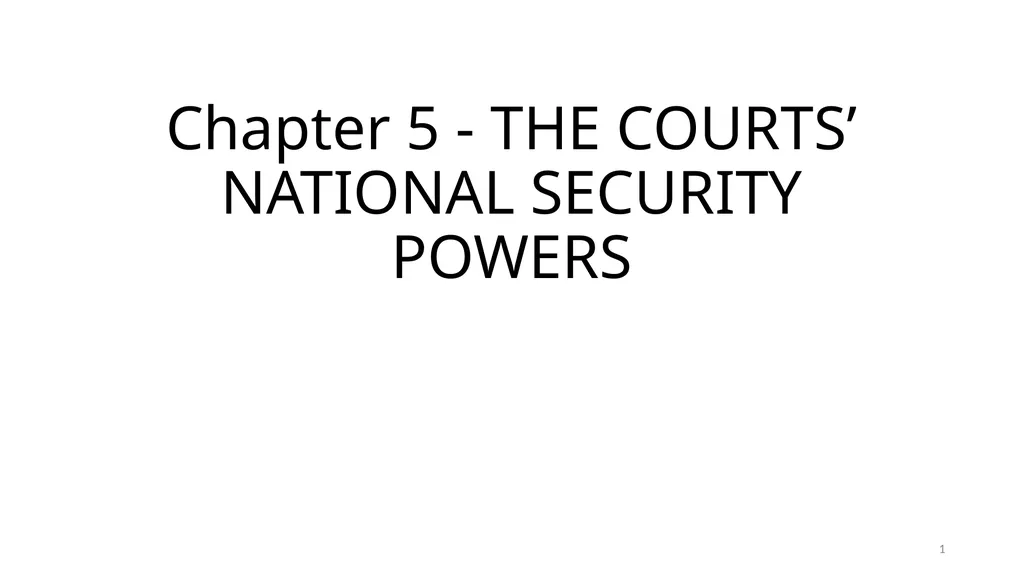
Chapter 5 - THE COURTS’ NATIONAL SECURITY POWERS 1
Author: sherrill-nordquist | Published: 2025-08-13
Description: Chapter 5 - THE COURTS NATIONAL SECURITY POWERS 1 Basic Standing Still Applies in National Security Cases (1) suffered an injury in fact, (2) that is fairly traceable to the challenged conduct of the defendant, and (3) that is likely to be
Download Presentation
Download the PPT/PDF: Download
Transcript:
Loading transcript�